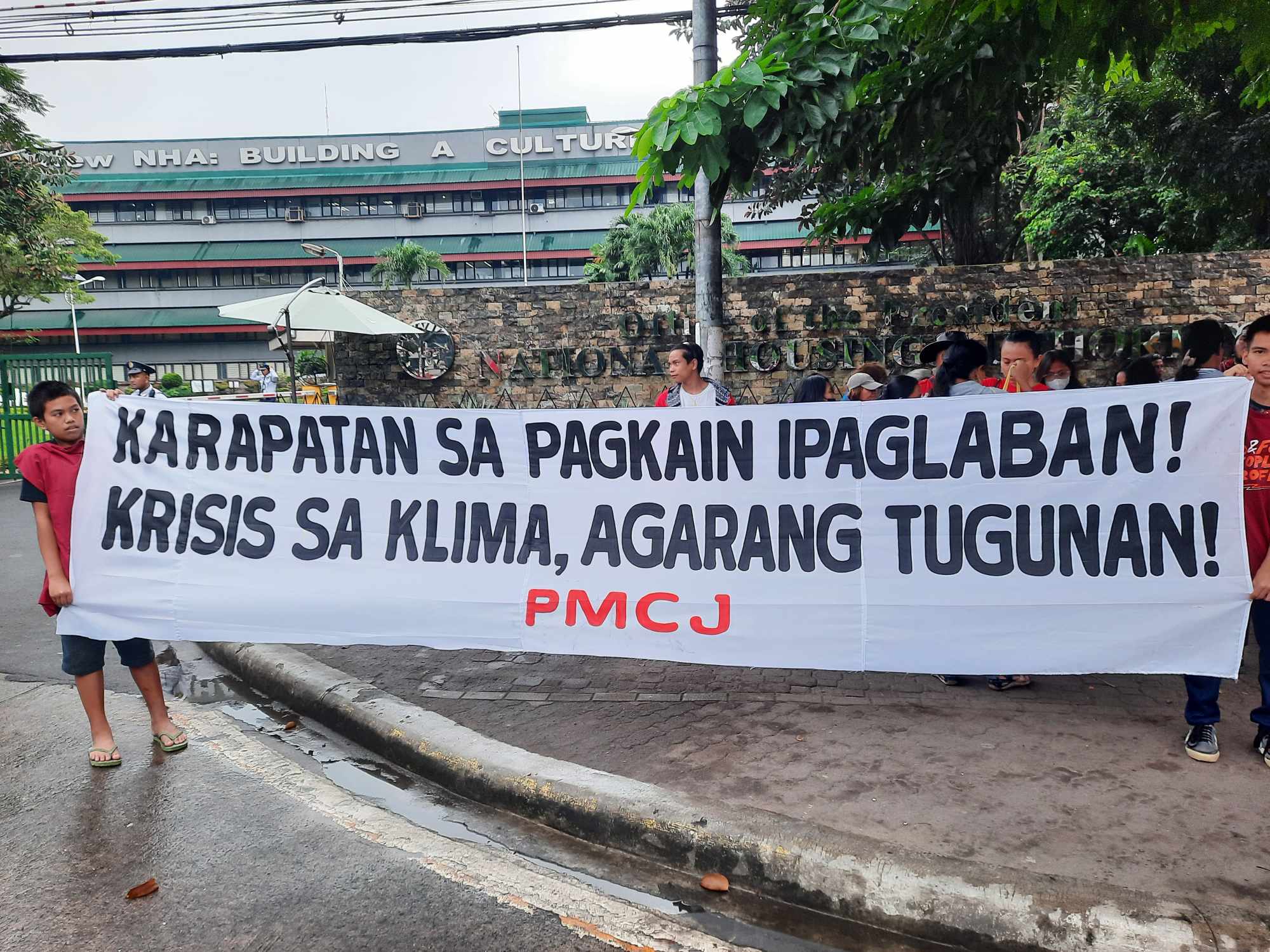BBM’s Food Stamp Program a rehash of the failed Kadiwa Program of the late Strongman Marcos will bring more hunger and disaster — PMCJ
[This is a published Press Release from the Philippine Movement for Climate Justice (PMCJ]
MANILA, PHILIPPINES — The Philippine Movement for Climate Justice (PMCJ) denounces “Walang Gutom 2027: Food Stamp Program,” the newly declared flagship program of the Bongbong Marcos Administration as it is only a rehash of the failed Kadiwa Program of the late dictator Ferdinand Marcos Sr.
Short-term cosmetic solution
“Food stamp program is a dole out, short term, cosmetic and will not solve in the long term the Filipinos food insecurity as well as the lackadaisical agricultural performance of the country,” PMCJ National Coordinator Ian Rivera said.
According to Rivera, instead of empowering the domestic economy and production which should be the salient features of any food program, the “Walang Gutom 2027” will only “enhance the existing economic policy of prioritizing global markets and importation.”
This is in reference to the huge reliance of the Philippines on food imports which was reported in 2022 reaching 13.92 percent. Moreover, according to USDA data, the Philippines is the world’s top rice importer for marketing year 2022-20223 overtaking China, despite the country’s capacity to have sufficient local supply.
Looming more debt
With the Walang Gutom 2027 mechanism to assist Filipino families through meals, Rivera likewise warned that it will become a fiscal trap in the long run “with a strong possibility of debt creation that can eventually lead to defunding public services for the Food Stamp program to be maintained.”
Last June, DSWD Usec. Eduardo Punay said that the Food Stamp program is confronted by the challenge of limited fiscal space in the government. The Usec. said that they are working with the World Bank and Asian Development Bank (ADB) to fund this.
This is in line with what DSWD Secretary Rex Gatchalian said in May of this year when he thanked ADB for funding almost $3 million for the now ongoing pilot implementation of the Walang Gutom 2027 Program.
While details of the actual program’s funding have yet to be revealed, the ongoing cooperation with ADB to push through with this program is a prelude to more foreign loans plunging the Philippines into deeper debt.
Lack of climate mitigation segment
Ultimately, the said program's neglect of climate mitigation raises a red flag. In an earlier statement, PMCJ said that the hunger situation “worsened by extreme weather events induced by climate impacts,” citing the country’s agricultural loss of approximately P8.099 billion this year brought by the nine typhoons that struck the Philippines.
Without any long-haul solutions such as protecting farmers and fisherfolks from adverse climate impacts on food production, the government will rely on imports leaving the entire agriculture sector behind.
Rivera further concluded: “What should the government do is reverse the neoliberal economic policies that have destroyed our domestic economy and agriculture and incentivize local agricultural production to solve immediately, the widening hunger situation of the country.”# PHOTO RELEASE: More than 1,200 climate justice activists and civil societies marched towards the Department of Agriculture on October 19 to call out the agency and the entire government's complicity in the widening food and climate crisis in the Philippines. Photographs courtesy of the Philippine Movement for Climate Justice.
[This is a published Press Release from the Philippine Movement for Climate Justice (PMCJ). Opinion stated in this PR is solely from the author of the PR published and may not be the same with the website.]










